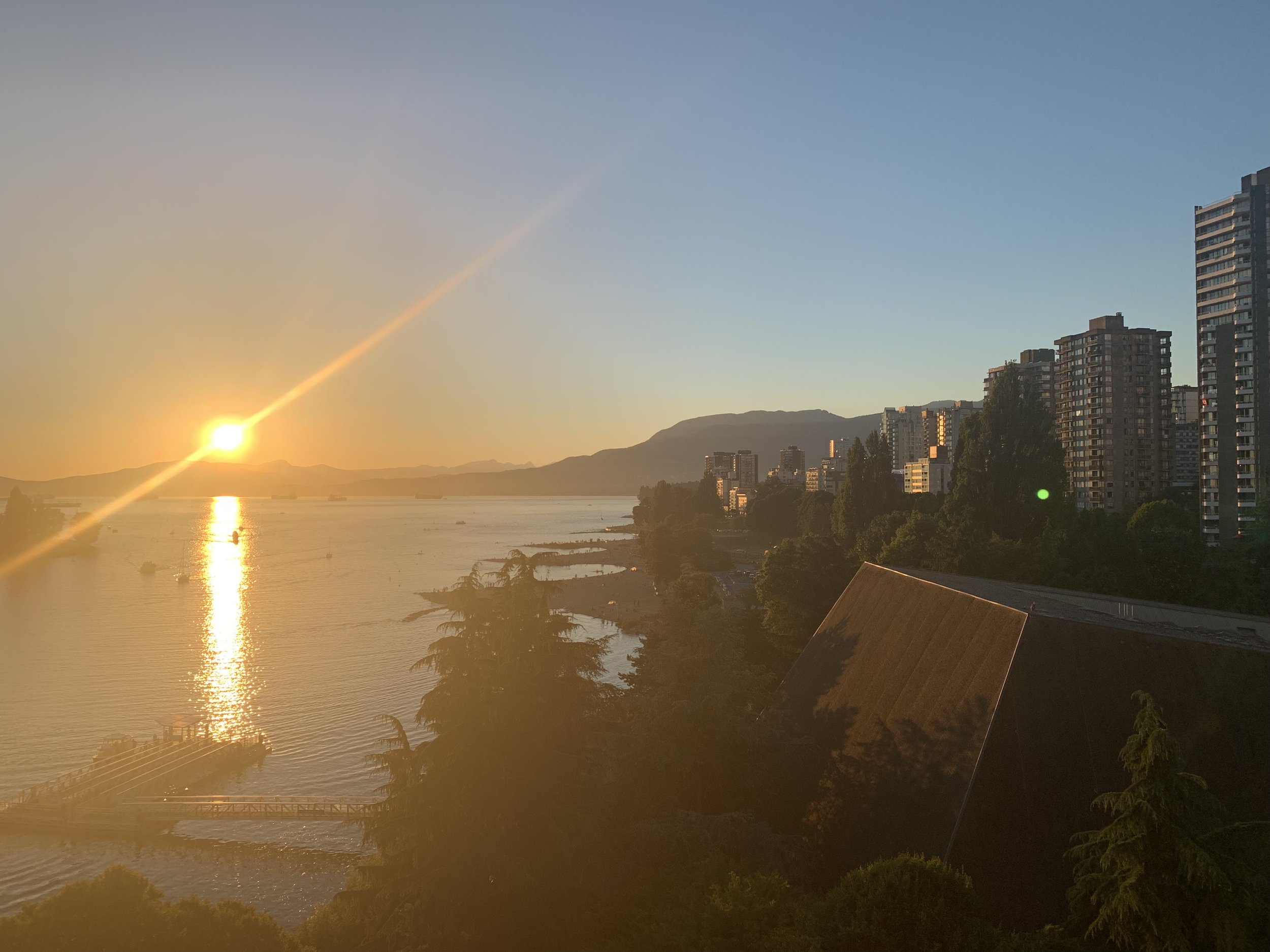Oreo
Surviving in cities requires a certain degree of disconnection. Unfiltered, the barrage of textures, sounds, sights and smells is too much to take in. There are too many people, too much movement. We become so effective at shutting out stimuli we don’t even realize we’re doing it.
Even after two years here, the view from the beach a few blocks from home regularly stops me in my tracks. I feel like I’m running into a postcard as the sun sets over the water with the mountains in the background.
I run without music so I can hear the waves crash on the beach. I watch for herons and seals. I notice the first signs of snow on the North Shore mountains. As I cut through Stanley Park, I’m struck by the silence. I hear my feet on the gravel and notice the stillness around me.
Nature is so close and escaping into it seems to be ingrained into the culture of the city. Connecting to nature, to something bigger than yourself seems to be a reoccurring theme in my interviews with people who have recovered from substance use. I wonder if this theme would be as present in other places.
View from the Burrard bridge.
Yet surviving in cities requires a certain degree of disconnection. Unfiltered, the barrage of textures, sounds, sights and smells is too much to take in. There are too many people, too much movement. We become so effective at shutting out stimuli we don’t even realize we’re doing it.
I think about this a lot here.
Vancouver has the unfortunate contradiction of consistently holding a place amongst the world’s most liveable cities, while simultaneously grappling with its reputation as a city with a complex problem with homelessness.
Photos of missing persons are posted on the Facebook groups of the Downtown Eastside every day. Tents dot the city streets and parks. I regularly question if the people passed out on the sidewalks need help or if they’re sleeping. Calling for help each time I was concerned could be a full time job.
The other day as I walked home, a woman held out a leaflet to me. I hardly looked at her, and nearly hurried by without acknowledging her. I slowed when I heard her say, “Please, my son is missing.” I accepted the pamphlet without saying a word. I couldn’t imagine her suffering and could think of nothing to say. Importantly though, I took the time to engage in the smallest of interactions with a mother desperately searching for her son.
A few days later, a woman sitting in that same spot called out to me. “Do you want an Oreo?” I smiled and said, “No, thank you,” while reaching into my bag of groceries. I asked if she wanted an apple. “Sure, but only if you take the Oreo.” It sounded like a fair trade and I told her so.
That woman taught me that there are Neopolitan Oreos. It may not be a lesson I needed to learn, but I’m glad I took a moment to connect with someone who reached out.


